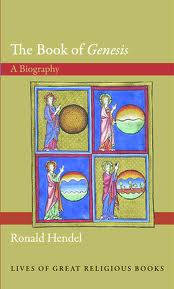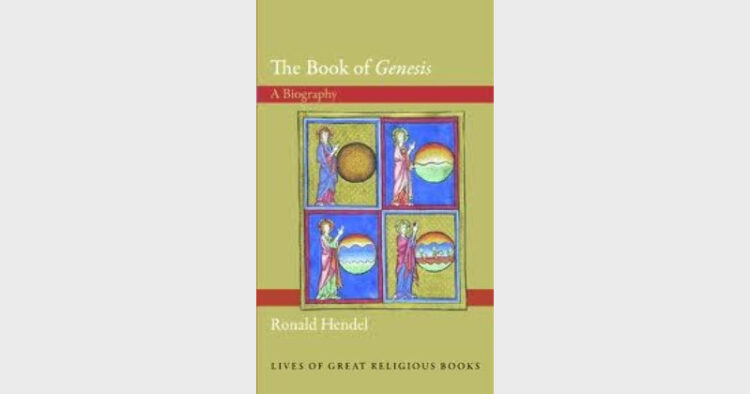Manju Gupta
 The Book of Genesis: A Biography, Ronald Hendel, Princeton University Press, Pp 187,
The Book of Genesis: A Biography, Ronald Hendel, Princeton University Press, Pp 187,
£ 16.95
RONALD Hendel, professor of Hebrew Bible and Jewish Studies at the University of California, writes in this volume that Genesis is all around us – from political and religious debates to culture. One has only to glance at the headlines to find controversies that take their heat and light from Genesis. The quantum of whether the contents of Genesis should be taught in science classes – under mere “creationism” or “intelligent design” – preoccupies school boards and political candidates. Proponents and opponents of gay marriage and gay clergy appeal to the testimony of Genesis. “While atheists criticise the irrationality of genesis, evangelical scholars argue whether Adam and Eve were historical figures,” says Hendel.
Genesis is the most familiar section of the Bible and some of the best-known Biblical stories like the creation of the world in six days, Adam and Eve’s travails in the Garden of Eden, the great flood and Noah’s Ark, the murder of Cain by Abel, the tower of Babel and table of nations, the call of Abraham, the destruction of Sodom and Gomorrah, the offering of Isaac, the lives of Jacob and Joseph, the births of Jacob’s twelve sons who become heads of the tribes of Israel. From debates about slavery, gender and sexuality to the struggles over creationism and evolution, these foundational stories continue to play a central role in how we think about science, politics, and human rights and in this biography, Hendel shows us how we got here from there.
In the earlier centuries Genesis was kept alive through the stories reproduced in illustrations in stained-glass windows and paupers’ Bibles. Monks and nuns chanted sublime songs dedicated to the patriarchs. Although most people could not read the book, the evidence of Genesis was obvious.
Genesis colours our life as we try to understand it. The author says that within the scope of the life of Genesis, three interwoven themes animate our story. 1) The life of Genesis involves an interplay of its original meaning – its “plain” sense – and its multiple forms of interpretation over the centuries. 2) The life of Genesis involves an ages-long relationship between truth and error, in which the boundaries between the two are fiercely contested. 3) The keys to understanding the book of Genesis in every age correspond to the keys to understanding the reality generally. But these keys change over time and open different doors. He laments that today many people do not read the Genesis, but the debate over the meanings and consequences of the stories told in it continues as it does over their multifarious interpretations expounded in Western culture.
He further explains that if you take any other book it does not have a life in the literal sense or it has a life as part of our past and present, but the book of Genesis is alive because “it” is a formative past of the human life-world…Its life is a part of our biography in the long span of human culture.” The biography of Genesis includes its life and its afterlife, its original meanings and its effects on later generations. Its afterlife transforms, renews and extends its life.” A text’s afterlife affects one’s reading of it, even if one tries to attend to its plain sense. But it is a common practice or habit to read the story of the Garden of Eden and import later interpretations to it, “such as original Sin, Eve as erotic temptress, or the snake as Satan.” These are products of Genesis’s afterlife which are hard to see around. The life and afterlife are in a tangled relationship with each other and that is why Genesis is said to have a complicated biography. The life of Genesis began a new phase – “A long midlife crisis – when it encountered modern science and biblical scholarship. Old assumptions were questioned and new problems, which had previously been unthinkable, became unavoidable.”
Hendel begins with the writing of Genesis in a small country in the ancient Middle East and demonstrates how layers of the ext were added by the subsequent generation of writers with each epoch in the story using Genesis to shape its own and subsequent generation’s views of reality. We still question and try to interpret the stories given in Genesis but we cannot ignore that these were our stories, whether we accept them or rebel against them. We may not read them any more but we do argue over their significance in our modern life.
(Princeton University Press, 41, William Street, Princeton, New Jersey-85 40.)













Comments